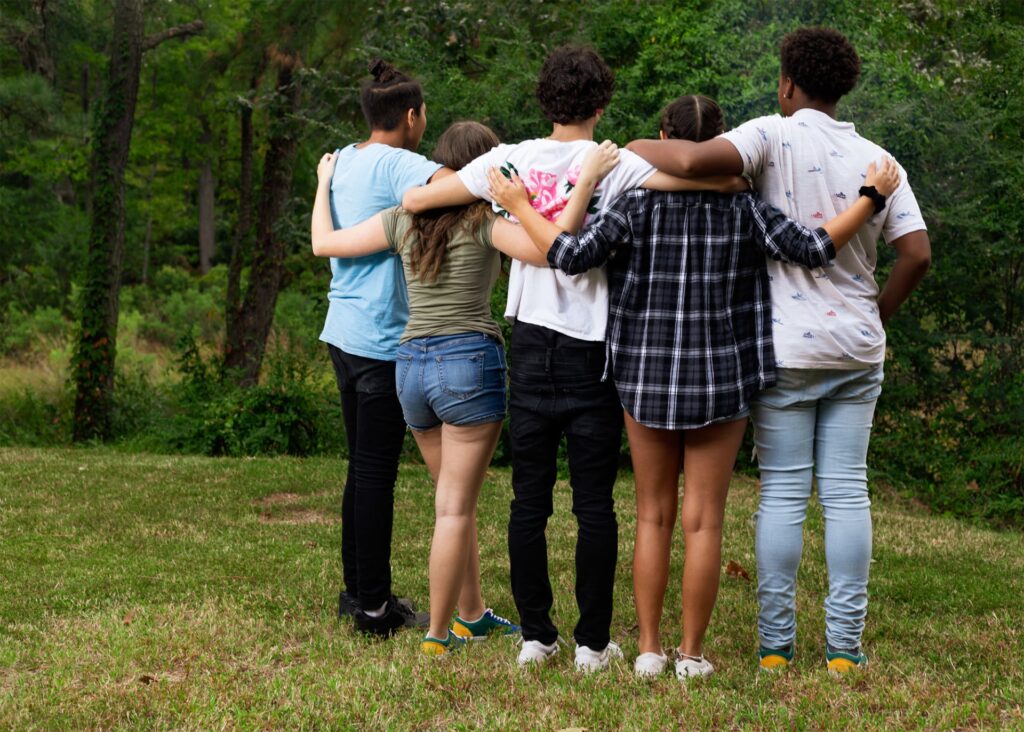The Pod Model for Learning Support Program is a wrap-around system of support designed to provide all youth in care attending high school ages 14 and over with the tools to succeed in school and beyond.
Emma*, a former youth in care, is one of the many students who received support from the program. After battling isolation, anxiety and depression, Emma struggled with school attendance and wasn’t sure if she would graduate high school.
“At a time when my mental health wasn’t great and I had given up on school, my Pod teacher encouraged me to keep going, to focus on school and my assignments,” said Emma. “She’s a person I could trust and rely on for help and guidance. I felt like she really cared.”
After connecting with her Pod teacher, Emma was able to get the credits she needed to graduate.
At the beginning of each school year, the program automatically connects all youth in care with a teacher on contract with The Children’s Aid Society of Ottawa (CASO), a youth worker, or a teacher candidate on Practicum placement from the University of Ottawa. The group of teachers and workers receive training and meet every week to review each student’s situation, progress and academic success plan. This collaborative model ensures that all students are regularly assessed and receive the best support tailored to their specific needs.
“The Pod Model isn’t one size fits all,” explains Jill Bennett, CASO’s Education Liaison. “Our philosophy is youth-driven – we aim to provide all youth in care with whatever they need to achieve academic success.”
As such, Pod teachers offer students a wide range of supports including, but not limited to:
- Tutoring
- Arranging transportation
- Social connection
- Time management support
- Course selection guidance
- Removing barriers to attending school
- Coordinating mental health support
- Facilitating re-entry meetings
- Career planning
- Graduation support
Pod teachers typically connect with their students once a week but can meet up virtually as often as needed.
This approach has been successful in improving school performance for some of Ottawa’s most vulnerable students, with high school credit completion rates increasing by 12% among participating youth in care in 2022.
The program was developed at the onset of the COVID-19 pandemic to offer personalized academic and socioemotional supports, ensuring that credit attainment was not slowed down by the pandemic. Despite schools having gone back to in-person learning, Bennett explains that the program continues to operate, simply “because it works.”
“After the first year, we saw that the Pod Model increased participating youth’s credit attainment by 15 per cent. Year after year, we continue to see similar success.”
Today, the program is entering its fourth year and continues to operate virtually, providing bilingual and culturally responsive wrap-around learning support to more than 150 youth in care.
The Pod Model for Learning Support Program would not be possible without the collaboration of Ottawa’s four school boards and The University of Ottawa’s continued partnership. More than 70 teacher candidates have participated in the program since 2020.
“Previous Pod teacher candidates are now working in schools across Ottawa – they have become advocates for students in care and are sharing their experiences and knowledge with other educators,” Bennett says. “This program has trained a whole new group of teachers so they are trauma-informed and understand the supports required by youth at risk, which will be lifechanging for our city’s most vulnerable youth.”
In 2021, the program’s success led the Ministry of Children, Community and Social Services to support CASO’s expansion of the program beyond the Ottawa region to Family and Children’s Services of Lanark, Leeds, and Grenville. CASO has received further interest from other child welfare agencies across the province and continues to look for growth and partnership opportunities.
*Name has been changed to maintain confidentiality.
Program Impact (2022/23 school year)
- The majority of participating youth reported benefiting from greater socioemotional wellbeing.
- 73-88% of students who engaged in the program maintained or expedited their planned graduation date.
- 7% more attempted credits were completed by students involved in the program than those who did not participate.





